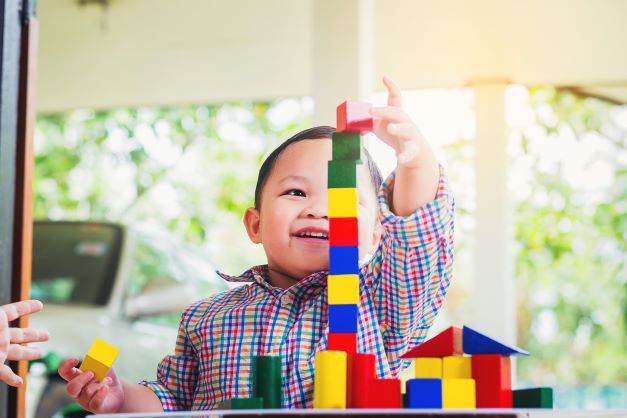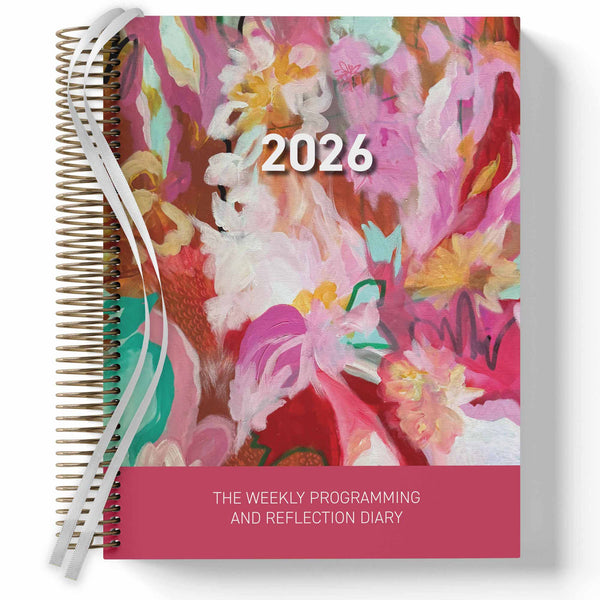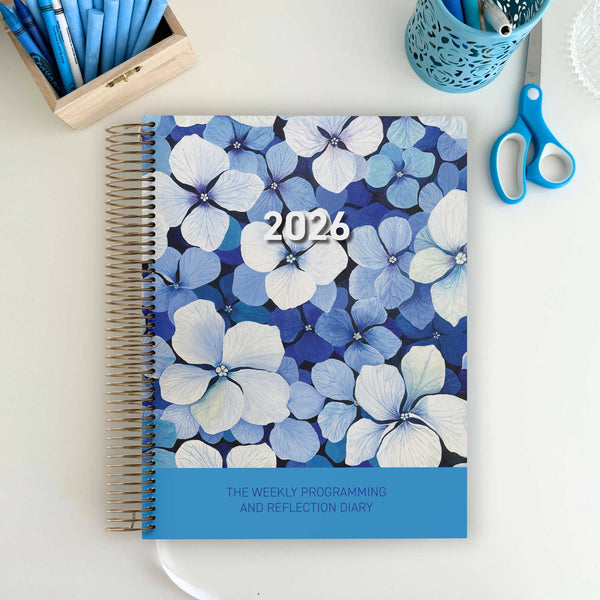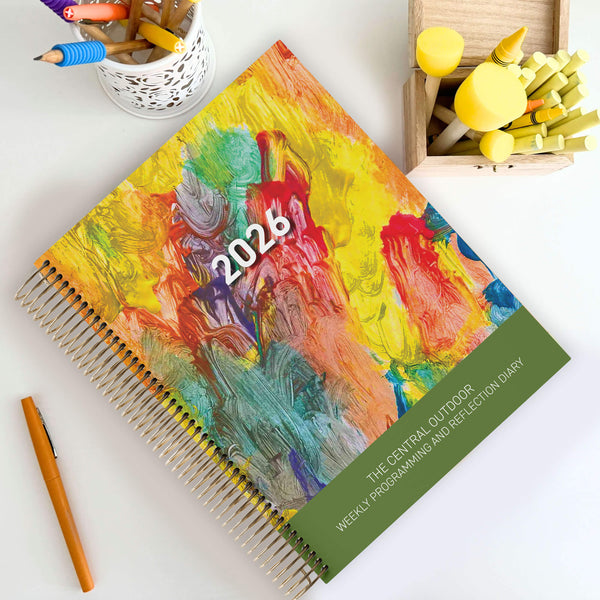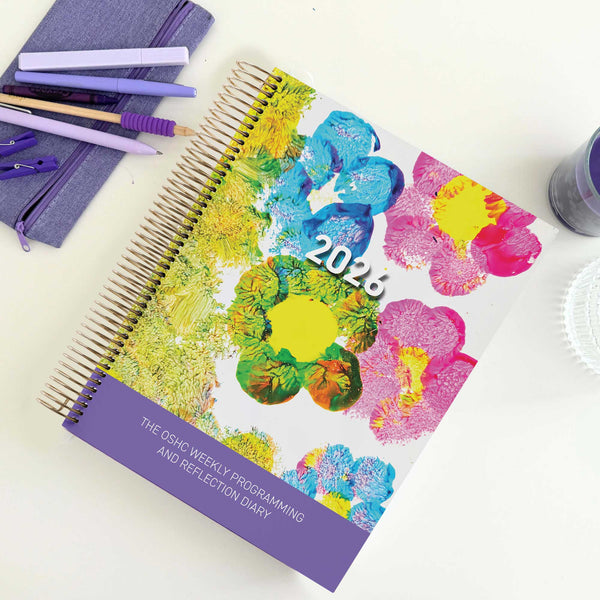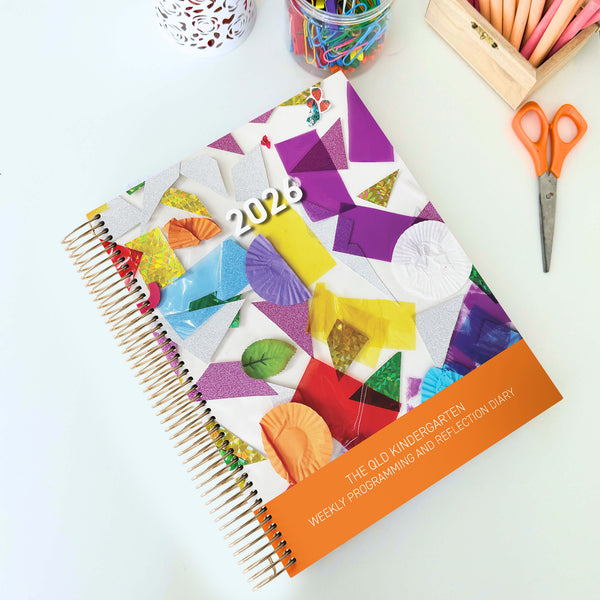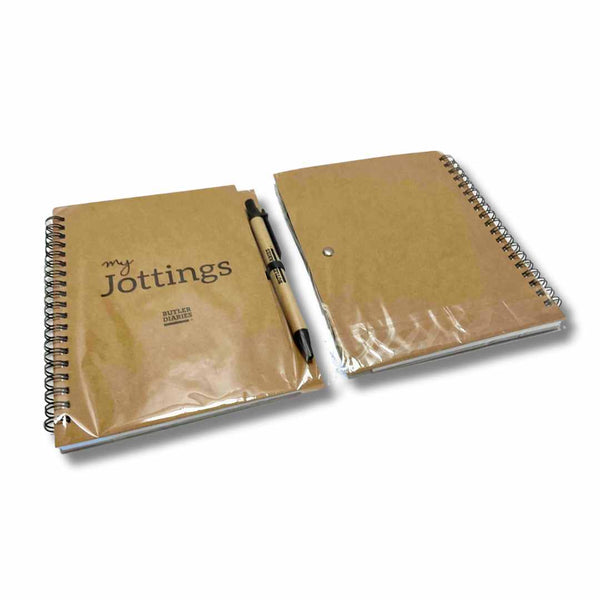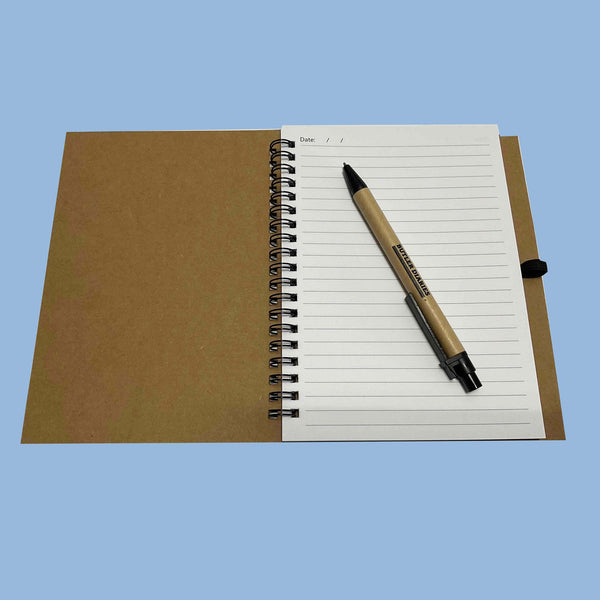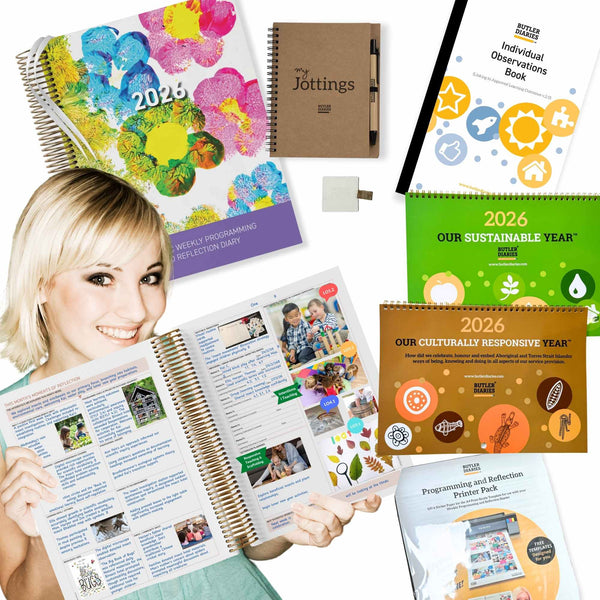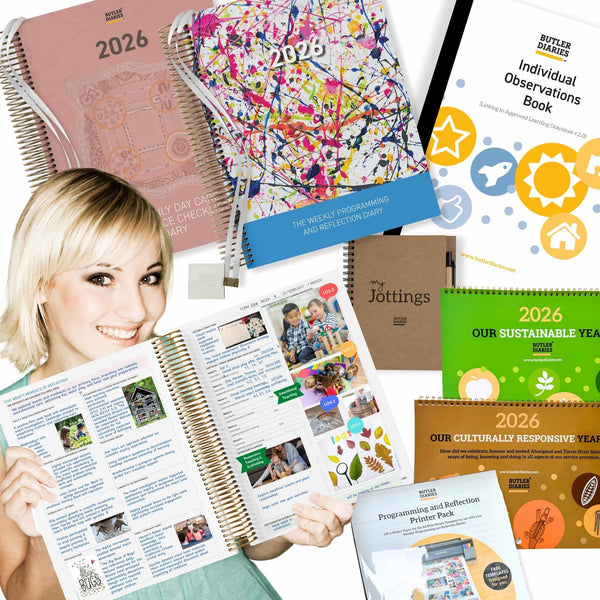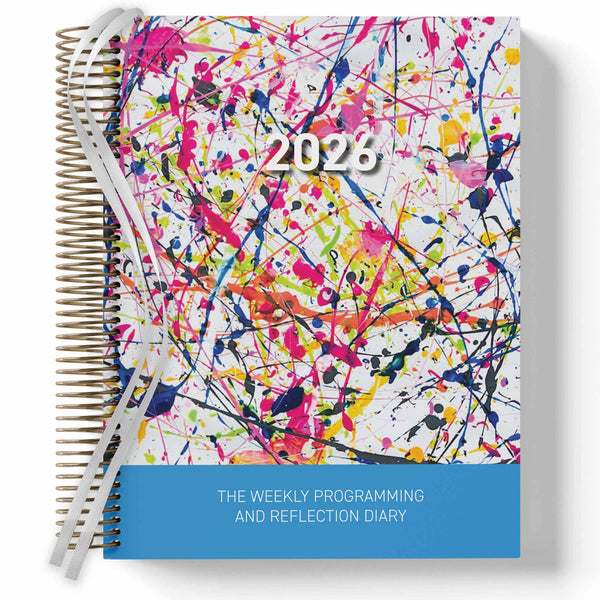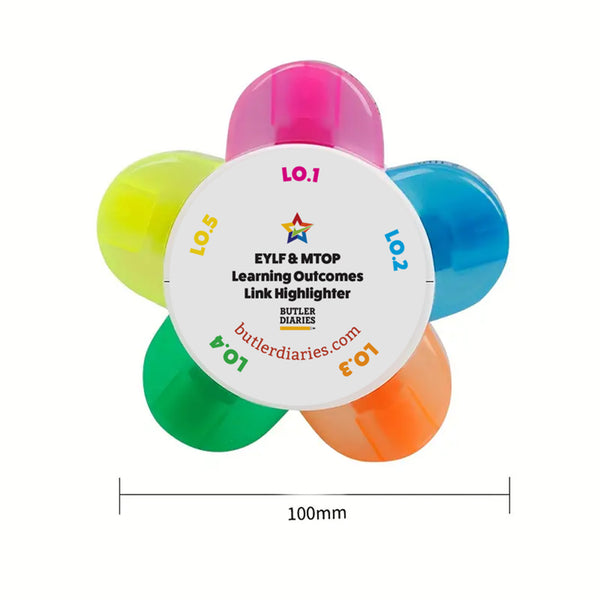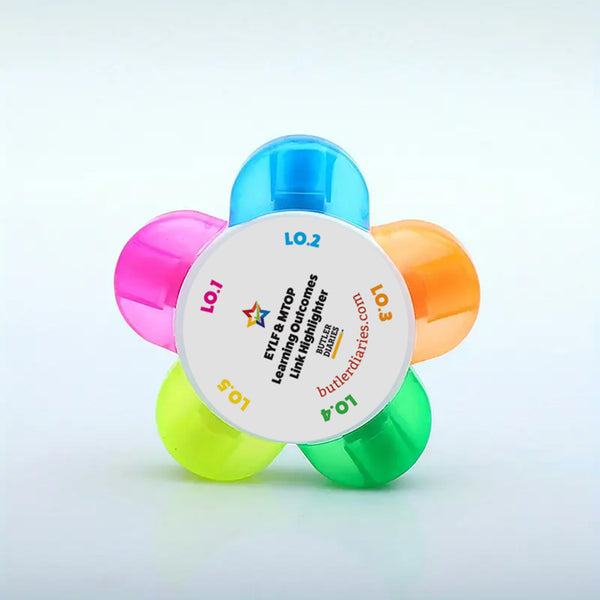Critical reflection – the process of carefully evaluating the outcomes of our actions – can help us to improve our educational methods, and thus better meet the needs of the children in our care. Critical reflection (as defined by Acecqa Critical Reflection) is a skill that comes with time and experience, but it’s well worth putting in the effort to hone it, as it will help you to continuously learn and improve your practice over time. Read on to find out more about how you can apply critical reflection in your early learning centre.
What is Critical Reflection
Simply put, critical reflection is critical thinking directed inwardly rather than outwardly. It’s a lens we use to look at our own practices and beliefs as childcare professionals. Through it, we examine what it is we do and why we do it: Are our actions and decisions valid or are they influenced by another person or group? Is there a better way to teach children?
If you struggle understanding where to focus your attention, the Weekly Programming and Reflection Child Educator Diary can help provide you the prompts you need to critically reflect on your program and use your reflection to improve your program, practice, and outcomes for children.
Reflection vs. Critical Reflection
What is meaningful reflection in childcare? In education, reflection and critical reflection are both used to describe an opportunity for educators to evaluate and improve upon their methods. The main difference between reflection and critical reflection is that critical reflection requires an educator to look at a situation from a different perspective or standpoint than he or she normally would—often in order to explore alternatives for improvement. Critical reflections also allow educators to consider multiple perspectives as well as challenge their own thinking, leading them toward more informed decision-making.
These prompts can help you critically reflect.
How do the Frameworks Define Critical Reflection?
The EYLF and MTOP V2.0 describe the difference between Reflection and Critical Reflection for Educators:
"Reflection involves educators thinking intentionally about their own and others’ practices, with certain aims or goals in mind. Critical reflection is a meaning-making process that involves a deeper level of thinking and evaluation. It requires engagement with diverse perspectives such as philosophy, theory, ethics and practice and then evaluating these in context, leading to pedagogical decisions and actions that are transformative. As professionals, educators collaboratively explore, identify and evaluate diverse perspectives with respect to their own settings and contexts. In this way, critical reflection informs future practice in ways that demonstrate an understanding of each child’s ongoing learning, development and wellbeing, and have implications for equity and social justice."
https://www.acecqa.gov.au/sites/default/files/2023-01/EYLF-2022-V2.0.pdf
We have found that the reason most educators struggle to successfully critically reflect is because there aren't quite sure how to apply these reflections to improve practice. When you address diverse perspectives as you reflect in the Weekly Programming and Reflection Diary, collaborate with your team, children, and families, and use these reflections to inform your following week's program and children's learning, you are critically reflecting. Our Weekly Programming and Reflection Diary is designed to help make this cycle of planning visible.
If you need more help understanding the cycle of planning and would like practical examples, you can check out this article.
Why is it Important in Early Childhood Education?
To understand why critical reflection is so important, let’s talk about its opposite: unreflective practice. We do things every day without questioning whether they’re right or wrong. This can be helpful if we know our actions are grounded in years of experience and a deeper understanding than others possess. But when we don’t think critically about what we do, we aren’t growing and learning from those experiences as a professional educator should.
Unreflective practice means you’re not learning from your mistakes. In fact, most educators are so busy taking care of young children that they don’t always have time to stop and reflect on how they could have made things better for those children. A lack of critical reflection leads to apathy and an inability to self-correct or improve.
As early childhood educators, we should reflect critically on our practices and beliefs, just as anyone in any profession does; it’s part of practicing our craft to ensure we are getting better at what we do. It is important that you reflect critically on what you have observed and how you will use these observations to improve your practice.
As an educator, it is important to consider how your own values and cultural beliefs may influence your practice and how children are viewed. It is also useful to consider how children might view themselves or others around them within their social context. This ensures that as an early childhood educator, you are always questioning your own practice for improvement but also striving for equity for children and their families.
How do you use Critical Reflection Effectively?
There are different ways in which you can critically reflect in early childhood education. Discussion with your peers and colleagues, observing children in their environments, reviewing current research and even consulting subject experts are all ways to work out how to observe a child effectively. Over time, you will get a feel for when something needs to be questioned or challenged within your practice. Observing children is an integral part of quality early childhood practice but it is always important to critically reflect on what these observations mean for your teaching practice. In Early Childhood Education, it is important these reflections are documented and a record of your reflective journey is kept for Accreditation.
The Weekly Programming and Reflection Diary is designed to support you in embedding critical reflective practice into your every day work with children through a weekly Reflection Spread that informs your following week's practice.
When to Critically Reflect?
If you’re wondering how often you should critically reflect, we suggest starting at least once per week. This may seem like a lot, but if you make a goal of doing one reflective session per week, over time it will become easier to incorporate more critical reflection into your daily practice. Eventually, critical reflection becomes a part of your daily programming, practice, decisions, and conversations with your team and families.
Some Questions to Consider when Critically Reflecting in your Weekly Programming and Reflection Diary
Some suggestions of critically reflective questions to ask yourself from EYLF V2.0 and how they can be recorded in your Weekly Programming and Reflection Diary are:
- "What is our understanding of each child, their culture and context?" Learning Data, Parent Input
- "What questions do we have about our work? What are we challenged by? What are we curious about? What are we confronted by in relation to our own biases?" Professional Inquiry, Was it a good/challenging week? Why?
- "What theories, philosophies and understandings shape and assist our work?" Professional Inquiry, Intentional teaching/Learning experiences covered
- "In what ways – if any – are the theories, knowledges and world views that we usually draw on to make sense of what we do limiting our practice?" Professional Inquiry, Intentional teaching/Learning experiences covered
- "What other theories or knowledge and world views could help us make sense of what we have observed or experienced? What are they? How might those theories and that knowledge affect our practice?" Learning Data, Professional Inquiry
- "Who is advantaged/included when we work in this way? Who is disadvantaged, excluded or silenced?" Were programmed goals & projected outcomes achieved?, Intentional teaching/Learning experiences covered, Professional Inquiry
https://www.acecqa.gov.au/sites/default/files/2023-01/EYLF-2022-V2.0.pdf
How to Embed Critical Reflection into your Practice and Inform Future Planning
As stated above, critical reflection can be a powerful tool to analyse what is happening during your interactions with children. It also helps you to become more self-aware as a person and thus becomes an important practice when working with others. However, it can be intimidating to begin reflective practice and often people are put off by its potential complexity. You need not worry! The key to embedding critical reflection into your work is just getting started - making time and space to think about your experiences is vital.
Using tools that encourage critical reflection as part of your programming and documentation can help you embed it into your practice. Our Weekly Programming and Reflection Diaries include a weekly critical reflection with prompting points to assist you in effectively reflecting on your program and making recording your reflections manageable. You can access a guide for reflecting in the diary's weekly reflection space here and download your handy Linking Theorists to the EYLF Outcomes PDF to support you in linking experts in your programming and reflections. Also see some critical reflection in early childhood examples here.
Resources
The Early Years Learning Framework V2.0, https://www.acecqa.gov.au/nqf/national-law-regulations/approved-learning-frameworks


